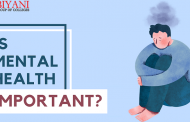INTRODUCTION:- snoring is the vibration of respiratory structure and the resulting sound, due to obstructed air movement during breathing while sleeping. In some cases the sound may be loud and unpleasant. Snoring during sleep may be a sign, or first alarm of obstructive sleep apnea (OSA). Researchers say that snoring is a factor of sleep deprivation
CAUSES:- Generally speaking the structures involved are the uvule and soft palate. The irregular airflow is caused by a passageway blockage and is usually due to the following:-
Throat weakness, causing the throat to close during sleep.
Mispositioned jaw, often caused by tension in the muscles.
Fat gathering in and around the throat.
Obstruction in the nasal passageway.
Obstructive sleep apnea.
The tissues at the top of airway touching each other, causing vibration.
Relaxants such as alcohol or other drugs relaxing throat muscles.
Sleeping on one’s back, which may result in the tongue dropping to the back of the mouth
IMPACT:- Snoring is known to cause sleep deprivation to snore and those around them, as well as daytime drowsiness, irritability, lack of focus and decreased libido. It can cause significant psychological and social damage to sufferers. Multiple studies reveal a positive correlation between loud snoring and risk of heart attack (about +34% chance) and stroke (about + 67% chance)
PREVALENCE:- Statistics on snoring are often contradictory, but at least 30% of adults and perhaps as many as 50% of people in some demographics snore. One survey of 5713 American residence identified habitual snoring in 24% of men and 13.8% of women. This suggests an increased susceptibility to snoring as age increase.
TREATMENT:- Almost all treatment for snoring revolve are as following :-
Clearing the blockage in the breathing passage.
Advised to lose weight (to stop fat from pressing on the throat)
Stop smoking ( smoking weakens and clogs the throat)
Sleep on their side (to prevent the tongue from blocking the throat)
OTHER TREATMENT:- Nasal sprays, Nasal strips or Nasal clips, lubricating sprays, oral appliances and “ANTI-SNORE” clothing and pillow, to such unusual activities as playing the didgeridoo.





